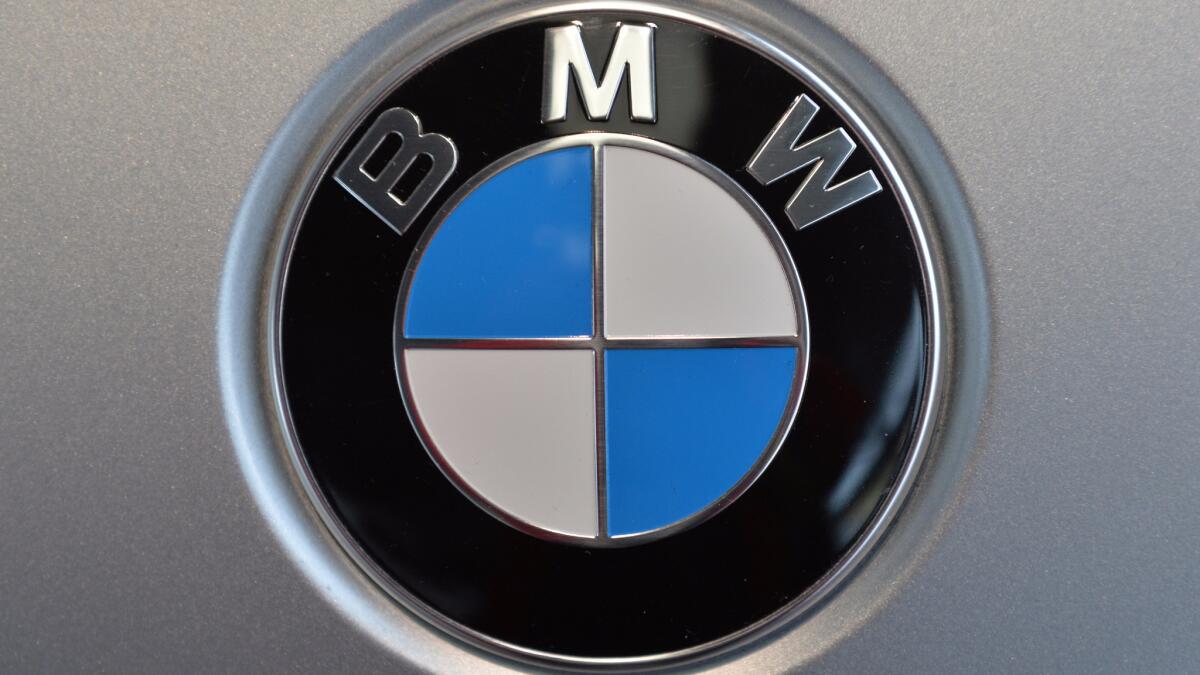SEC is investigating BMW over sales reporting practices

- Share via
BMW is being scrutinized by the U.S. Securities and Exchange Commission over its sales reporting practices, months after the regulator extracted a penalty from Fiat Chrysler Automobiles over similar issues.
The German automaker has been contacted by the SEC and will cooperate fully with its investigation, BMW spokesman Phil Dilanni said. The SEC doesn’t comment on the existence of any probes, agency spokesman Kevin Callahan said.
The inquiry creates a new headache for BMW just as the company shows signs of recovering from a series of stumbles.
Last month it reported a jump in earnings under new Chief Executive Oliver Zipse as he presses ahead with a cost-cutting program after a slump in European car sales.
Also last month, BMW agreed to pay a $31-million fine to settle a German antitrust investigation of the industry’s steel-buying practices. The company has also set aside about $1.5 billion for a European Union probe into alleged collusion by the country’s automakers to delay the rollout of cleaner-emission cars.
BMW has been in a tight race with Daimler’s Mercedes-Benz for leadership of the U.S. luxury auto market. Mercedes has owned bragging rights the last three years, but BMW leads by fewer than 3,300 units this year through November.
Bernhard Kuhnt, who took over as president of BMW’s North America business in 2017, has reinvigorated sales with an onslaught of new sport utility vehicles.
Dealers have criticized BMW in the past for pressuring them to buy vehicles from the manufacturer to stock their fleets of loaner cars, for customers who are having their own vehicles serviced. Bloomberg News reported on bonuses or allowances the company paid to dealers in late 2015 and mid-2012 that helped inflate sales results.
Dealers are required to mark the cars as sold. To resell them to consumers as used models, they typically have to do so at depressed prices. In the meantime, the retailers also have to foot the costs of carrying the cars in inventory.
Fiat Chrysler agreed in September to pay a $40-million penalty related to years of sales reports the SEC said were fraudulent. The Italian-American automaker misled investors by wrongly claiming a years-long streak of monthly gains and inflated results by paying dealers to report fake sales, according to the agency.
The Fiat Chrysler practices came to light following a dealer lawsuit filed in January 2016. Some carmakers have backed away from monthly U.S. sales reporting since last year.
The Wall Street Journal reported on the SEC’s investigation of BMW earlier.






